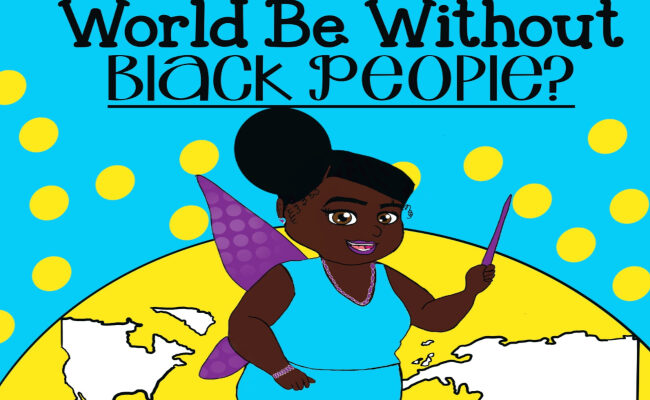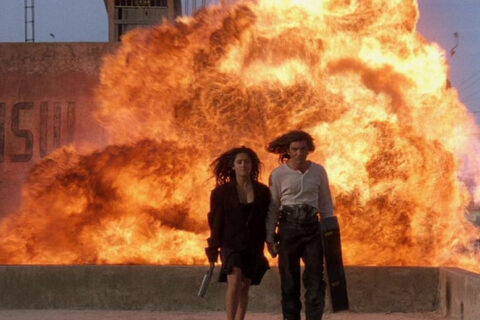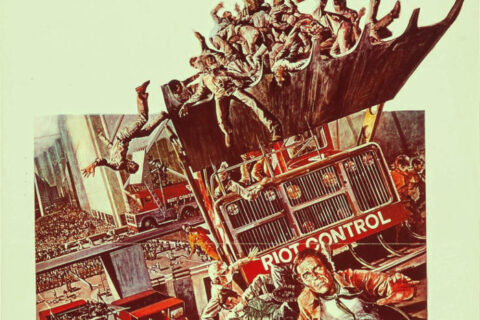I recently purchased a hardcover titled What Would The World Be Without Black People? While this is an ugly sentiment completely alien to my psyche, it piqued a morbid curiosity. Here’s the Amazon synopsis:
When Timothy gets mad at a friend, he wishes he lived in a world with no Black people. Well, Timothy gets his wish. Let’s find out what happens.
The cover depicts a black woman hovering in front of planet Earth, much in the style of a primordial Titan from Greek mythology. By the power of her immense size, the continents are driven apart and misshapen beyond the recognition of any mariner. North America cowers in proportion to her posterior.
I couldn’t resist checking out the preview pages. A passage from the first:
Timothy walked 30 blocks to the mall with no music. He started to realize life without black people felt empty and cruel. When Timothy finally got to the mall he didn’t see the usual elevator.
What barbarism we’d be living under if left to our own devices. Perhaps we’d get between floors of retail using grappling hooks. My order hasn’t arrived yet, so the best I can do is speculate about Timothy’s outing. Although, this sort of excitement can be ruled out:
It’s a tome that entertains some puzzling contrasts. For instance, one wonders if the purpose of the illustrations is subversion of the literary thesis. On the page discussed above, a gleaming cityscape centers the background while Timothy mouth-breathes his way unmolested through a pristine greenbelt to the mall. I suppose the contrast is what engages the reader.
The plot seems to be premised on an event in which blacks and all of their contributions are extricated from society, perhaps by divine intervention or some sort of teleportation technology operated by extraterrestrial blacks. Where did they go? There’s no indication the author explains this part at all, which is disappointing.
However, that’s refreshing compared to the old racist consensus, which was that they need to go back to Africa or at least back to their own part of town at night. Here’s what Lincoln told a group of blacks in 1862:
“Your race suffers greatly, many of them by living among us, while ours suffers from your presence. If this is admitted, it affords a reason why we should be separated.”
When I get the chance to read it all, I suppose I’ll be fully enlightened on the extent of the deprivation we’d experience without blacks. I’m baffled as to how every generation of my family lived without them and yet somehow found the will to carry on until they arrived in America. I’m also a bit ashamed about how I’ve lived in places with no blacks and found the situation agreeable if not downright placid.
White academia has failed, foremost in explaining how black agricultural laborers in a specific region built the entire country despite constituting a small portion of the population. We know from the NYT’s 1619 Project that they’re the fulcrum of American history and yet nobody bothers making the case with rigorous scholarship.
Likewise, we know that the violence and dysfunction in black communities isn’t their fault, but rather that of White communities where these problems don’t exist. Meanwhile, it’s generally acknowledged the implication of both paradoxes is that we owe trillions in reparations. I’m very confused but hopefully when this book arrives it’ll all start making sense.

I’m proud to officially announce my candidacy for the office of Dogcatcher.






It would be very different.